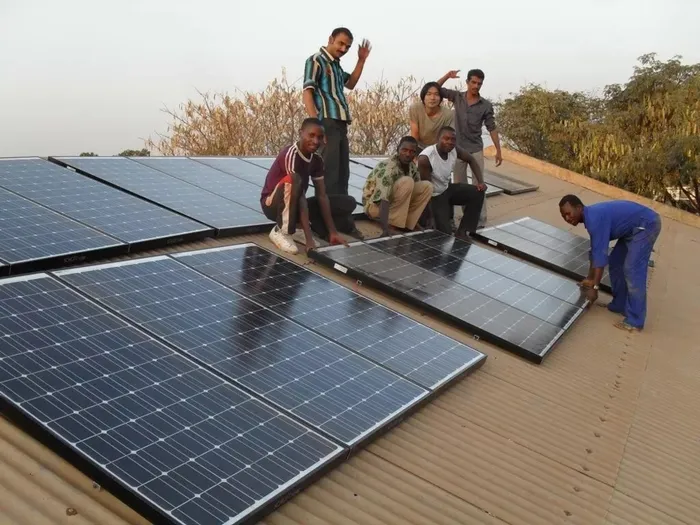‘Africa poised for shift to green energy’

Picture: South Sudan Embassy in Nigeria – While positive changes are expected in Africa with its access to abundant green energy resources – solar, wind – South Sudan’s minister of … Wol Jong says that the transition to clean energy will not happen overnight as ‘people will continue to work with the hydrocarbons until the time comes’.
‘Positive changes’ expected in energy balance of Africa, says South Sudanese official
By Maxim Grishenkin
The official’s remarks came on the sidelines of the Russian Energy Week, taking place in Moscow from October 11 to 13 and attracted over 4,000 participants from more than 60 countries, including high-ranking officials and representatives of leading energy companies.
Africa is poised for a shift to green energy, as it has the abundant resources to make the transition, Mayen Wol Jong, Undersecretary in South Sudan’s Ministry of Petroleum, told Sputnik Africa.
“We expect positive changes in Africa. Africa has a lot of green energy resources. The sun, hydro-electric and all those kinds of things. So, we expect positive things towards green energy,” Wol Jong noted.
At the same time, the official predicted that the transition to green energy would not happen overnight, but gradually.
“People will continue to work with the hydrocarbons until the time comes [...] It is something that people continue to do as a transitional activity, when you are working on it little by little, it will take time,” Wol Jong stressed.
Regarding Africa-Russia co-operation in the energy sector, Wol Jang noted that Moscow needs to “come forth in order to cope and work, for us specifically in South Sudan”.
The official also commented on Africa’s co-operation with Europe, noting that Africans should take more responsibility. Wol Jang remarked that “nobody will come and do everything 100 percent for you” and that the continent will continue to rely on others if it “doesn’t pick up for itself and take charge of everything.”
“And we need to avoid that in the future,” the undersecretary concluded.
In late September, South Sudanese President Salva Kiir arrived in Moscow for talks with Russian President Vladimir Putin. During the meeting, Putin said that there is much to be done in the economic cooperation between the countries.
Following the visit, South Sudanese Foreign Minister James Pitia Morgan told Sputnik Africa that South Sudan has invited Russian enterprises to explore the country in many areas, including oil production.
Democratic Republic of Congo
East African forces ‘must leave DRC by December’: Minister
By Samantha Arias
In November 2022, East African Community troops were deployed to the DRC in response to insecurity in the country. Dozens of militant groups operate in the eastern part of the DRC, most notably the M23 movement, which has controlled significant territory since launching an offensive last March.
The East African Community Regional Forces (EACRF) will leave the Democratic Republic of Congo by December 8, the country’s minister of communications, Patrick Muyaya, said during a press conference in the city of Kinshasa on Monday.
“The EAC regional force must leave the Democratic Republic of Congo by December 8,” the official said, as quoted by the media. According to him, the government will not grant an extension “because [the mission] has not been able to solve the problem.”
In September, the current mandate of the EACRF was extended for a second time by three months and is due to expire at the end of this year.
The EACRF consists of troops from four countries: Kenya, Burundi, South Sudan, and Uganda. The force was deployed to the DRC last November in response to the deteriorating security situation in the east of the country amid a widespread insurgency.
Security in the eastern part of the country has been a major concern for the DRC in recent years due to a widespread armed anti-government campaign by the March 23 Movement (M23) rebels. The rebel group has seized swathes of territory since re-emerging from dormancy in late 2021, resulting in the displacement of approximately one million people in the region.
These articles were first published on Sputnik
Related Topics: